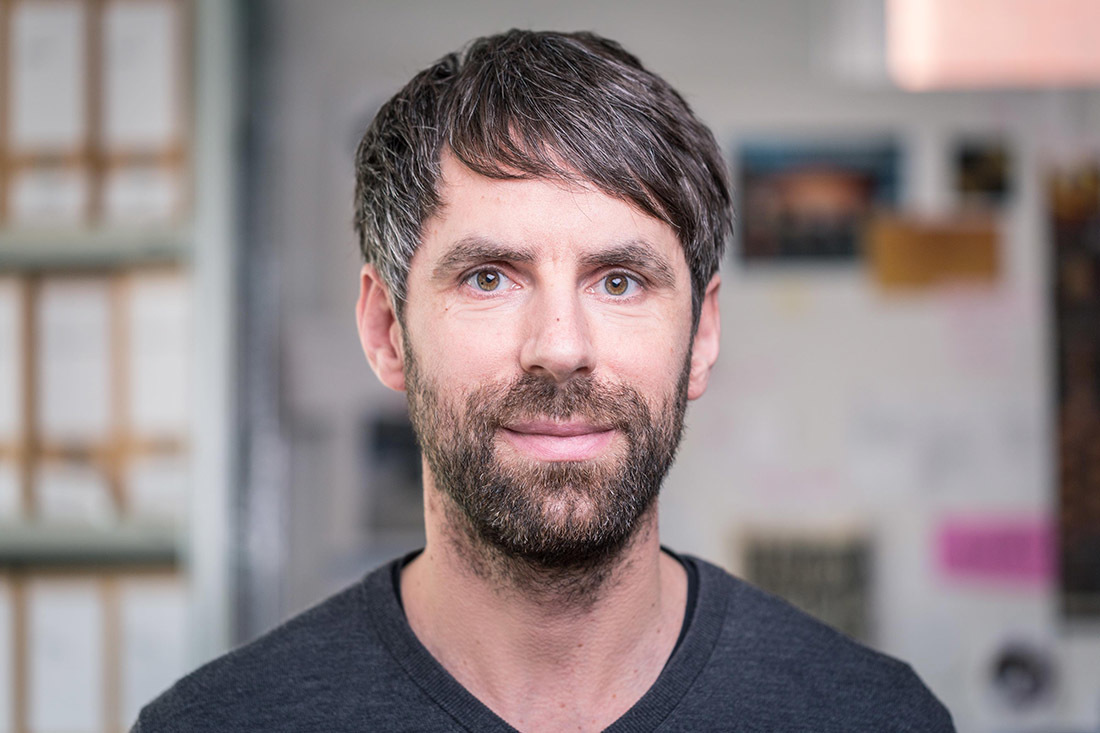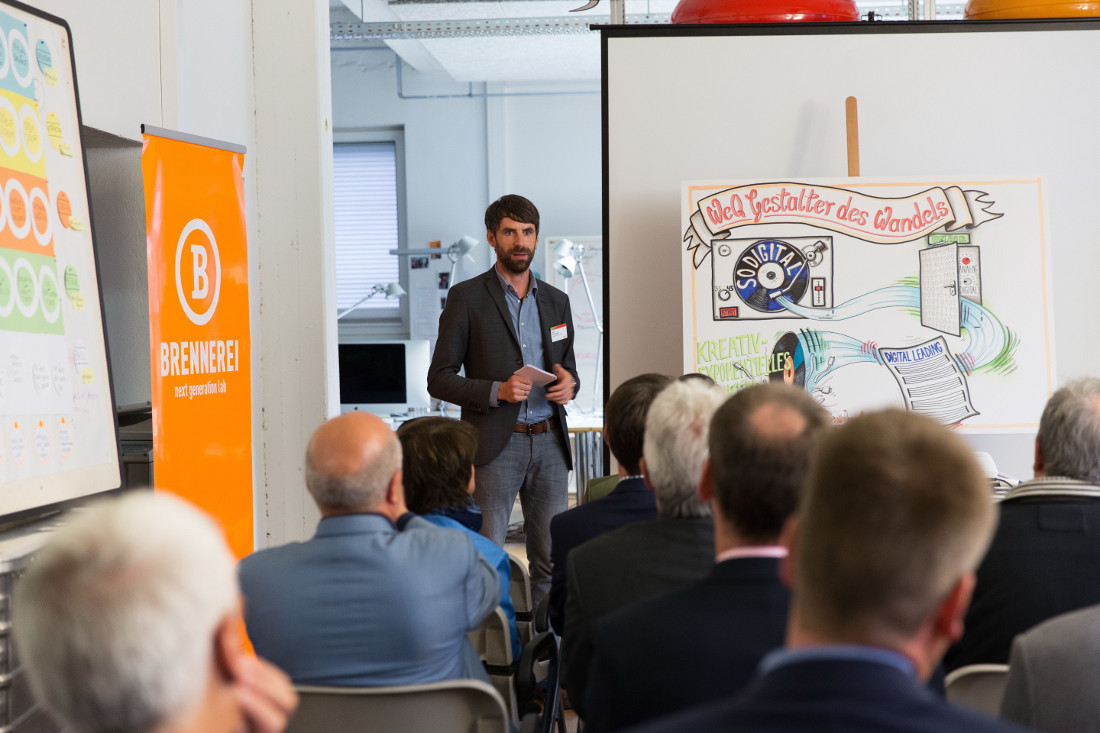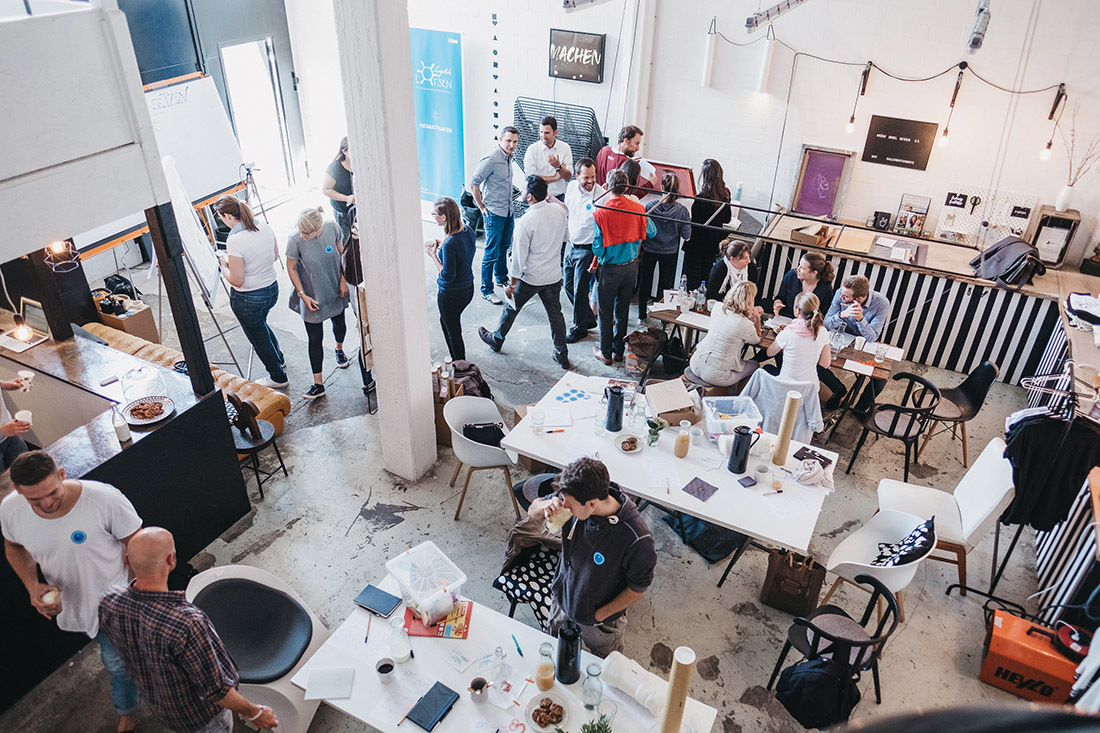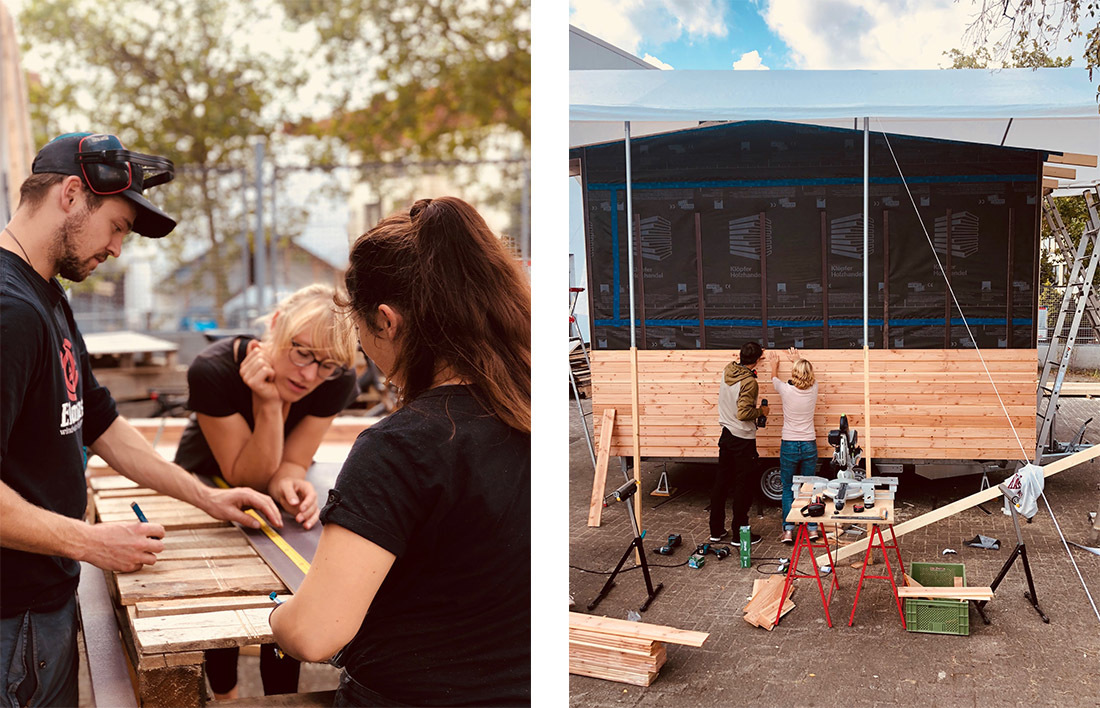What exactly is New Work?
DigitizationThe future of work

New Work, Work 4.0, coworking and remote working are just some of the buzzwords associated with changes in our work environments. But what do they mean? And can anyone benefit from New Work?
We put these questions to Sven Hermann. The 42-year-old is the founder of Bremen-based consultants ProLog Innovation GmbH and a professor at the NBS Northern Business School. He advises on New Work initiatives and digitalisation processes, particularly in logistics, and supports the LogistikLotsen initiative, which is also looking for answers to the challenges that work will hold in the future.
Mr Hermann, what exactly is New Work?
Hermann: New Work is essentially about the search for meaning in, and a different mentality towards, work. It also asks the question: “What do we expect from work in the future?” The concept discusses this on three levels:
The first is to some extent a global criticism of growth. Does growth always have to be the focus of economic activity? Do we have to constantly go further, higher and faster? Or are there sustainable alternatives? Could the circular economy replace this focus on ‘more’ that dominates our society? Sustainability is an important aspect of New Work.
The next level is the collective. This is about how an organisation should and must change, and what systems it needs to put in place to help employees to learn, and to work flexibly and autonomously. It is also about ensuring that employees are involved and remain motivated.
The third level focuses on the individual. How can a person keep on learning in today’s world? How can they motivate themselves and positively engage with the changes all around them? How can they act autonomously?

Why is this such a hot topic now?
Hermann: New Work is by no means a new idea. It has been around for decades, but the digital revolution has brought it to the fore again. New technologies are replacing many tasks and jobs, while the world is transforming more and more rapidly. Demographic change is also having an effect on the composition of our society. In many cases, our old work habits no longer fit into this new world.
This all leads to the question of what the future holds for work. Who will still be working? Will there be enough work for everyone? Why do we do the work we do? What skills will we need in the future? These are the questions that underpin New Work.
Does this topic have its roots in the digital economy?
Hermann: Partly. Large tech companies such as Amazon, Google and Facebook have experienced huge growth in a short space of time. This has increased interest in the way they work and what lies behind the success of these businesses. What can we learn from them? To some extent, digitalisation is making the person the focus of work again. Anything that can be automated, will be automated. New Work is about allowing individuals to fulfil their potential and concentrating on what makes us human.
What are the approaches that tech companies have followed and are now finding their way into New Work?
Hermann: In addition to coworking, innovation labs and remote working, which focus on where you work, many of the key New Work methods (such as scrum) originate in software development. Traditional project management is no longer fast enough, and long-term plans are often overtaken by reality. Scrum works with short time intervals, iteratively, and so can be adapted quickly.
This is a good fit for today’s fast-paced world, where fixed budgets, deadlines and plans no longer work. Companies organised along conventional lines allow too little room for questioning the status quo, and there are not enough opportunities to react.
Greater customer involvement is another important aspect. Customers are now part of the project and play their part in development. In this context, methods such as design thinking are used, and the working environment becomes a key factor: What is the environment like? Do I have to leave it if I want to gain a new perspective? Then there are new playful approaches to creativity, such as Lego Serious Play.

Many traditional jobs – on an assembly line or at a checkout counter – do not offer the option of flexible or remote working. Does New Work apply only to very specific professional groups?
Hermann: Naturally, it will focus on certain types of activities. I can only work remotely if I do not need to be physically present in the workplace. New Work is going to be less relevant to jobs that offer less freedom and require less creativity.
However, traditional jobs are particularly suited to being automated. In the future, robots and artificial intelligence will take over many of these jobs. We will be left with tasks that involve greater freedom, creativity and collaboration than is currently usual, where people will continually need to find new tailor-made approaches and solutions.
How will New Work make inroads into the company? Will the workforce demand it, or will it be introduced by companies which realise the need to react to challenges in a different way?
Hermann: It will come from both sides. The younger generation is increasingly looking for purpose in their work, which means that companies offering new approaches are seen as more attractive employers. But it only works if management understands this and leads by example. I work with many SMEs, and have found that managers need to have a basic motivation to introduce change and a basic understanding of why this is so important.
Does this require a new generation of senior managers?
Hermann: The questions surrounding organising and shaping work in a new way, which New Work attempts to answer, are not new. They have been around under different guises for a long time. But I get the feeling that this is now mainly driven by the next generation. These are the people who want to change things, who want to work differently.
What type of companies are currently looking at this? Is it mainly those that are already more involved in innovation and development, or are there traditional manufacturers among them?
Hermann: There is a mix. It is often the employees who hear about these new topics, are interested in them and then sign up for workshops. So it starts with a new approach being tried out on a small scale, and from that develops a workshop for the entire company, supported by senior management.

How can companies ensure that new methods become firmly established and are not just a flash in the pan?
Hermann: As a first step, it makes sense to trial them in an area where acceptance levels are the highest, and where implementation will be easiest. For example, by providing a new room for creative work or by introducing a meeting structure.
Every company will have critical voices that do not want change. These critics often have good reason: they have experienced many times how external consultants have come in with new ideas, but in the end nothing really changed.
To counter this, you have to focus on areas where resistance is low and interest is high, and where it is easier to introduce new approaches. This also requires external support and input. Continuing professional development should be an integral part of everyone’s career plan.
So, the objective is to not raise expectations which cannot be fulfilled?
Hermann: Exactly. There often is a belief at management level that two or three workshops are enough to restructure the company. But it’s not as easy as that. Any company that really wants to change will need to put a great deal of time and energy into it. Some companies are too naive in this respect.

The method has to fit the corporate culture?
Hermann: Yes. Some companies are very hierarchical. They will often have strong leaders who are unlikely to be open to change. You have to make allowance for these leaders, otherwise it won’t work. But even in these companies, measures such as self-organisation, participation and the right to have a say in things can work in small doses.
Mr. Hermann, thanks for the interview!
Success Stories
“After all, we're here because someone else made room for us, and it's our duty to do the same for others”
Theoretical physicist, industrial mathematician, manager – as a member of the start-up company TOPAS, Dr. Shruti Patel creates change in Bremen. However, being a role model has not always been easy for her.
Learn more12 Examples of AI in Medicine and the Health Sector
Detecting cancer earlier or avoiding accidents at work - AI will make our lives easier and easier in the healthcare sector. In Bremen, a strong AI landscape is developing in the healthcare sector, as these 12 examples show.
Learn moreThese Bremen companies are developing autonomous systems
Self-driving cars, drones, robots - in Bremen, autonomous systems are a focus of numerous focus of numerous companies. A look at the diverse corporate landscape and where the committed players can be found.
Learn more
